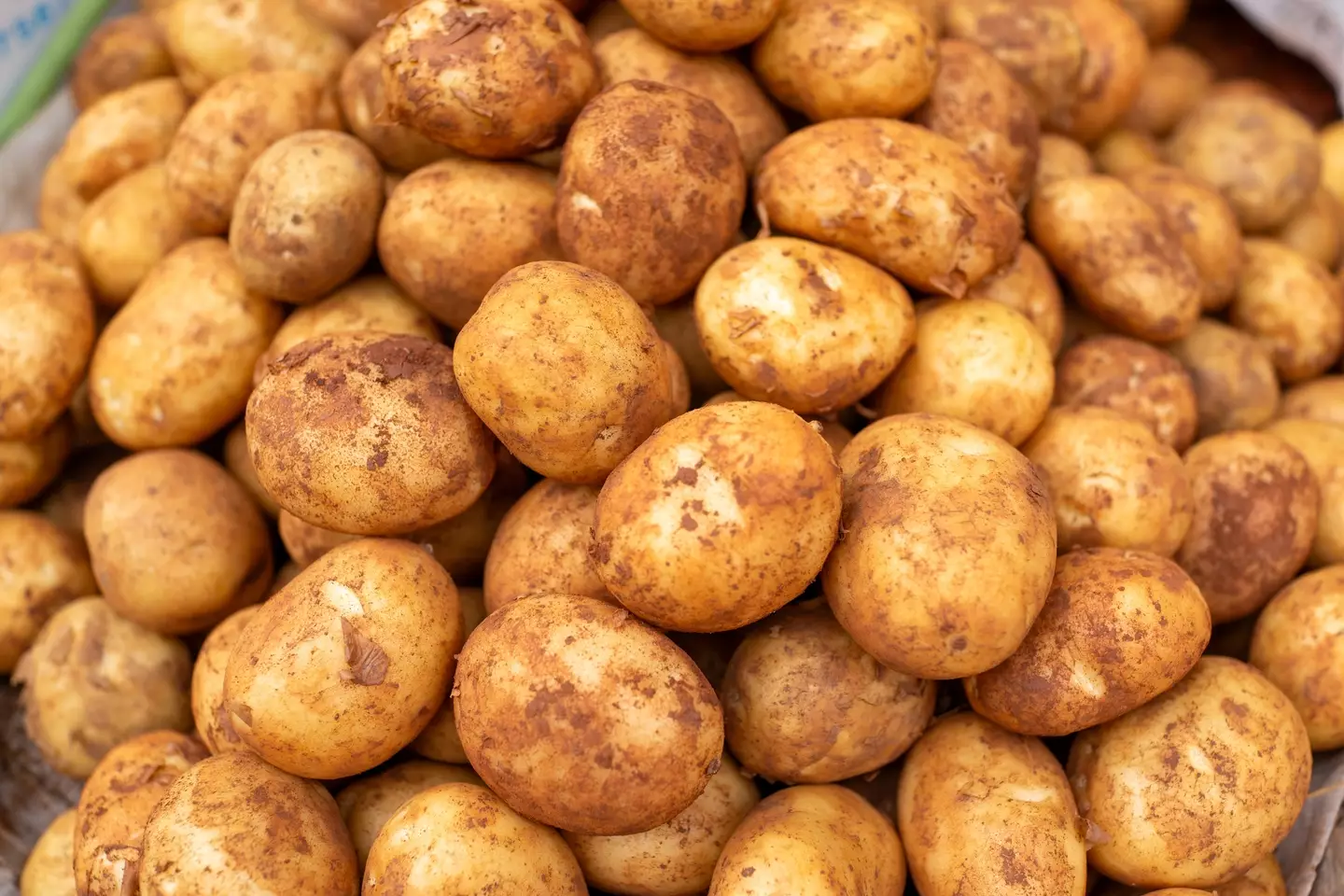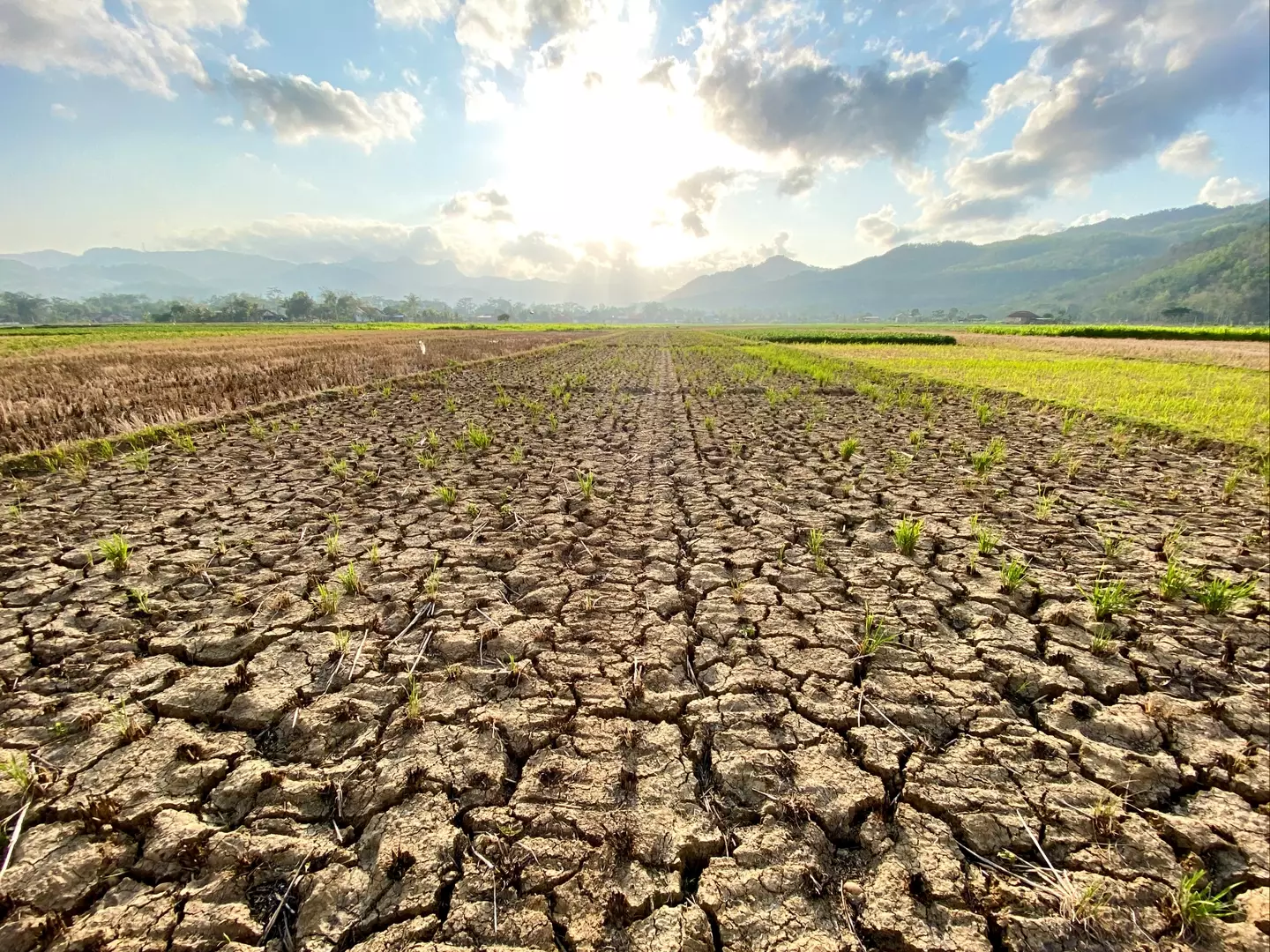
If you thought the cost of living might be about to make a turn for the better, you probably haven’t been following the news.
Macroeconomic turmoil driving the cost of everything up has been the story of the decade – well, besides that story where we locked ourselves in our homes for months with no end – and the climate isn’t making things easier for us, either.
According to research from the Energy & Climate Intelligence Unit, a UK-based non-profit which conducts independent research into energy and climate issues, several kitchen staples are about to rise in price as unusual weather patterns ravage crops.

Advert
Those include: British potatoes, vegetables grown in California, onions from India and South African maize.
The study was headed up by Maximillian Kotz from the Barcelona Supercomputing Center, and it analysed crops from 18 countries between 2022 and 2024 where high temperatures, droughts, and heavy rainfall all became extreme enough to set new post-2020 records.
The UK alone saw potato prices jump by 22% between January and February 2024 after unusual winter rainfall, with the Energy & Climate Intelligence Unit pointing to a rainfall increase of 20% that was made 10 times likelier by climate change.
Vegetable prices in the US meanwhile jumped by 80% in November 2022 following droughts in the west, and a 2022 drought in Ethiopia saw food prices there rise by 40% in March 2023.
The study’s press release noted that these poor growing conditions will make nutritionally-rich food harder and more expensive to come by, posing a heightened risk of people developing diet-related health issues as they opt for more readily-available UPFs.
“Until we get to net zero emissions extreme weather will only get worse, but it's already damaging crops and pushing up the price of food all over the world,” said Kotz.
“People are noticing, with rising food prices number two on the list of climate impacts they see in their lives, second only to extreme heat itself.
“Sadly, when the price of food shoots up, low-income families often have to resort to less nutritious, cheaper foods. Diets like this have been linked to a range of health conditions like cancer, diabetes and heart disease."
Shona Goudie, Policy and Advocacy Manager at The Food Foundation, added: “Healthy food shouldn’t be a luxury, but soaring food prices in recent years have made it increasingly difficult for parents to afford to put healthy food on the table for their families. In fact, the latest government data shows that Brits are consuming far below the required minimum of five fruit and veg a day.
“Increasingly frequent price shocks due to climate change could see food insecurity and health inequalities deteriorate even further without action from Government – which is particularly concerning for children given that good nutrition is essential for them to grow up healthy. Steps such as improving the Healthy Start Scheme to help low-income families afford fruit and veg, as well as making fruit and veg more available and affordable in schools, are paramount. Alongside this, we need to increase production of British fruit and veg to help increase our resilience to shocks overseas.”
Where the UK’s crops are concerned, it isn’t just potatoes facing climate-based cultivation issues. Foods including cereals, cauliflower, broccoli, and onions have all suffered growth setbacks in recent years thanks to unusual weather patterns. Imports from other countries have also suffered for similar reasons, limiting supply and thereby increasing prices.
Amber Sawyer, an analyst at the Energy & Climate Intelligence Unit, said: “Last year [2024], the UK had its third worst arable harvest on record, and England its second worst following extreme rainfall that scientists said was made worse by climate change.
“But it’s not just that. British farmers have been yo-yoing between extremes for the past few years. They’ve gone from having to contend with extreme heat in 2022, when temperatures reached 40°C for the first time, to extreme rain in 2023, both of which ruined their crops.

“Fast forward to now, and they’ve just faced the warmest spring since records began and the sixth driest, followed by the second hottest June. For them, climate change isn’t a distant warning: it’s a reality they’re living every day. It’s no wonder that 80% of British farmers are concerned about the impact of climate change on their ability to make a living.
“These extremes are also hitting consumers. In the UK, climate change added £360 to the average household food bill across 2022 and 2023 alone. We’ve seen much more extreme weather since then.”
In other words, we need to strap in for yet more increases to the cost of living as food supply chains face increased climate-based strain.
